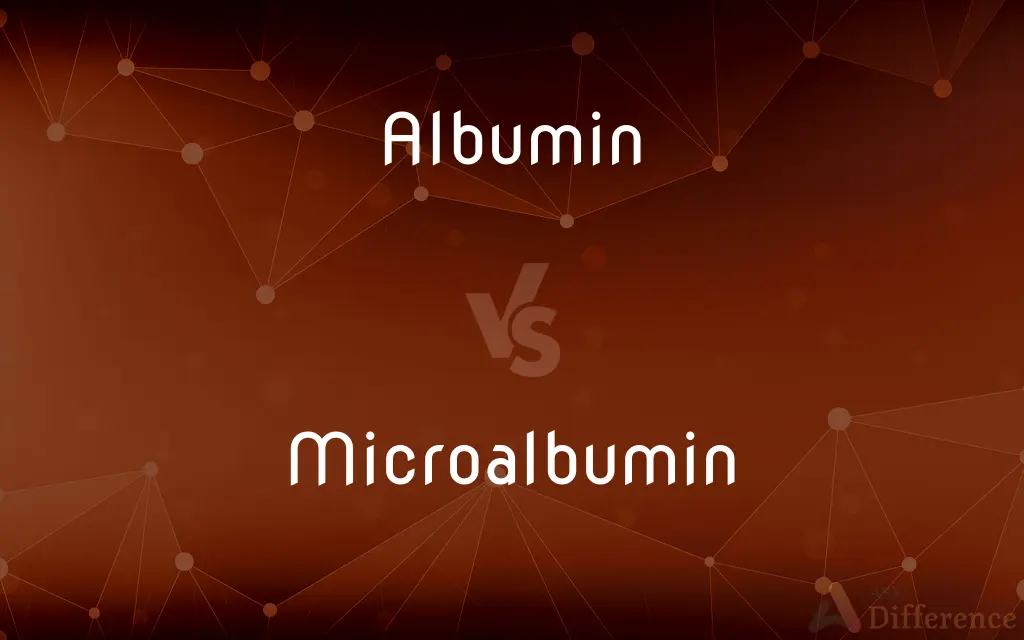Albumin vs. Microalbumin — What's the Difference?

Difference Between Albumin and Microalbumin
ADVERTISEMENT
Compare with Definitions
Albumin
Albumin is a family of globular proteins, the most common of which are the serum albumins. All the proteins of the albumin family are water-soluble, moderately soluble in concentrated salt solutions, and experience heat denaturation.
Microalbumin
A test for microalbuminuria
Albumin
A simple form of protein that is soluble in water and coagulable by heat, such as that found in egg white, milk, and (in particular) blood serum
Analysis showed traces of haemoglobin and serum albumin
Human and baboon albumins
Albumin
Any of a class of water-soluble proteins that are found in egg white, blood serum, milk, and many other animal and plant tissues. Also called albumen.
Albumin
(protein) Any of a class of monomeric proteins that are soluble in water, and are coagulated by heat; they occur in egg white, milk etc; they function as carrier protein for steroids, fatty acids, and thyroid hormones and play a role in stabilizing extracellular fluid volume.
ADVERTISEMENT
Albumin
A thick, viscous nitrogenous substance, which is the chief and characteristic constituent of white of eggs and of the serum of blood, and is found in other animal substances, both fluid and solid, also in many plants. It is soluble in water and is coagulated by heat and by certain chemical reagents.
Albumin
A simple water-soluble protein found in many animal tissues and liquids
Share Your Discovery

Previous Comparison
Sharon vs. Persimmon
Next Comparison
Bogie vs. Boogie














































